GOTHIC OPERA
You will notice in the first five paragraphs of Edgar Allan Poe’s “The Fall of the House of Usher” that the storyteller’s description of an ancient decomposing castle, surrounded by a fetid and motionless moat, expertly sets the scene for a gothic tale. Speaking of the mansion, the narrator feels “an utter depression of soul which I can compare to no earthly sensation more properly than to the after-dream of the reveller upon opium.” Thus, even before our narrator enters the castle, the reader is plunged into a sense of confinement and apprehension.
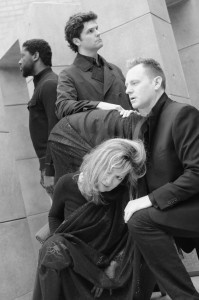 Aside from the creaking, moaning and foul weather associated with gothic horror, Poe has us palpably experiencing “an atmosphere which had no affinity with the air of heaven, but which had reeked up from the decayed trees, and the gray wall, and the silent tarn – a pestilent and mystic vapor, dull, sluggish, faintly discernible, and leaden-hued.”
Aside from the creaking, moaning and foul weather associated with gothic horror, Poe has us palpably experiencing “an atmosphere which had no affinity with the air of heaven, but which had reeked up from the decayed trees, and the gray wall, and the silent tarn – a pestilent and mystic vapor, dull, sluggish, faintly discernible, and leaden-hued.”
Listen to these adjectives and try to imagine any other composer but Philip Glass to create the operatic adaptation of one of the most famous short stories ever written. Glass himself never liked the term minimalist and preferred to speak of himself as a composer of “music with repetitive structures.” Much of his early work was based on the extended reiteration of brief, elegant melodic fragments that wove in and out of an aural tapestry. Or, to put it another way, it immersed a listener in a sort of sonic weather that twists, turns and surrounds with hypnotic results. Poe describes the House of Usher as having “dark and intricate passages” with “an atmosphere of sorrow” and “an air of stern, deep, and irredeemable gloom.” Based on a partial recording I heard of his 1987 opera The Fall of the House of Usher, Glass’ use of repetition and haunting, suspenseful refrains perfectly captures the temperament of Poe’s masterpiece.
In a rare opportunity to catch this eerie, shadowy, melancholic and unsettling work, Long Beach Opera is presenting the West Coast premiere in a major production opening this week at the gorgeous Warner Grand Theatre in San Pedro (the production then plays in Chicago Feb. 23 – Mar. 1). The opera, with libretto by Arthur Yorinks, marks Long Beach Opera’s (LBO) first co-production with Chicago Opera Theater (COT), both of which are under the 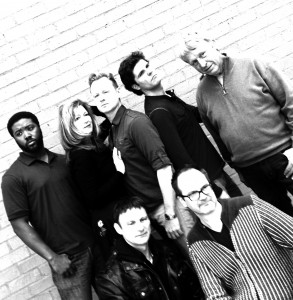 direction of Andreas Mitisek, who is entering his 10th season as LBO’s artistic and general director.
direction of Andreas Mitisek, who is entering his 10th season as LBO’s artistic and general director.
“Our 2013 BORDERLINE Season introduces figures who walk the line between truth and illusion, genius and madness, “explains Mitisek, who will be conducting the performances. “The Fall of the House of Usher is about internal and external collapsing worlds. Glass’ music suspends reality and time, hypnotizing us on this journey to the edge of the real and imaginary. It’s a 90 minute psychological roller coaster ride.” Which sounds ideal for LBO, which is known for its cutting-edge interpretations of unconventional repertoire (the company already produced two other Glass operas: Akhnaten and The Sound of a Voice).
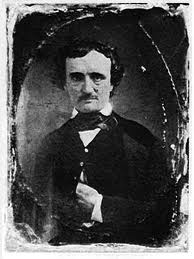 In the story, an unspecified protagonist (the Narrator) is beckoned to the isolated manor of his childhood comrade, Roderick Usher. After sensing dread merely by seeing the house, the Narrator joins with his old friend, who is anguishing from a bizarre mental sickness and whose sister Madeline is near death due to a baffling illness. The Narrator affords companionship to Usher while he paints and plays guitar (like a vampire, Usher avoids sunlight and does not go outside). When Madeline dies, Usher chooses to entomb her in the short term in one of his house’s enormous vaults. Soon thereafter, however, she materializes from her conditional crypt, slaying her brother while the Narrator escapes to save his own life. The House of Usher literally ruptures and rips apart, ultimately crumbling, eradicating the last fragments of the ancient clan. (The entire short story can be accessed on LBO’s web site).
In the story, an unspecified protagonist (the Narrator) is beckoned to the isolated manor of his childhood comrade, Roderick Usher. After sensing dread merely by seeing the house, the Narrator joins with his old friend, who is anguishing from a bizarre mental sickness and whose sister Madeline is near death due to a baffling illness. The Narrator affords companionship to Usher while he paints and plays guitar (like a vampire, Usher avoids sunlight and does not go outside). When Madeline dies, Usher chooses to entomb her in the short term in one of his house’s enormous vaults. Soon thereafter, however, she materializes from her conditional crypt, slaying her brother while the Narrator escapes to save his own life. The House of Usher literally ruptures and rips apart, ultimately crumbling, eradicating the last fragments of the ancient clan. (The entire short story can be accessed on LBO’s web site).
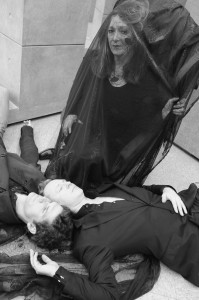 Look for a modern interpretation of the tragic and spooky story. Director Ken Cazan states, “Upon the first hearing and reading of Glass’ opera’¦ I had an automatic reaction to the relationship of Roderick and William [the Narrator]. Roderick’s desperate need of William, and William’s very “sensitive” gift of a music box and anxiousness to be with Roderick, immediately impressed me as a budding or long desired homosexual relationship. Perhaps it was tending to go there in their youths, as they played together during puberty and adolescence. Certainly, Roderick wrote to William, beseeching him to come and help him, in a desperate voice, practically begging for him to join him. William feels an unusual sense of passion for Roderick, a long lost friend whom he hasn’t seen since they were children. William very forcefully speaks of taking Roderick away, of saving him.”
Look for a modern interpretation of the tragic and spooky story. Director Ken Cazan states, “Upon the first hearing and reading of Glass’ opera’¦ I had an automatic reaction to the relationship of Roderick and William [the Narrator]. Roderick’s desperate need of William, and William’s very “sensitive” gift of a music box and anxiousness to be with Roderick, immediately impressed me as a budding or long desired homosexual relationship. Perhaps it was tending to go there in their youths, as they played together during puberty and adolescence. Certainly, Roderick wrote to William, beseeching him to come and help him, in a desperate voice, practically begging for him to join him. William feels an unusual sense of passion for Roderick, a long lost friend whom he hasn’t seen since they were children. William very forcefully speaks of taking Roderick away, of saving him.”
Poe was fascinated with both the duality of human nature and schizophrenia, and he investigates that with Madeleine, Roderick’s ailing “identical” twin sister. Cazan 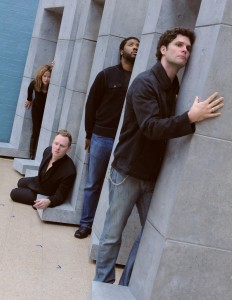 asserts that “William doesn’t see her until she is dead yet he feels her presence; in the opera he hears her without seeing her. Does she really exist? Is she the feminine side of Roderick which he is trying to suppress; in fact, who he thinks he has suppressed, literally buried, until she rears her violent head later, literally bringing about Roderick’s demise? [In the end], Roderick, not unlike the persecuted Oscar Wilde, falls victim to the conservatism and social mores of his surroundings and class.”
asserts that “William doesn’t see her until she is dead yet he feels her presence; in the opera he hears her without seeing her. Does she really exist? Is she the feminine side of Roderick which he is trying to suppress; in fact, who he thinks he has suppressed, literally buried, until she rears her violent head later, literally bringing about Roderick’s demise? [In the end], Roderick, not unlike the persecuted Oscar Wilde, falls victim to the conservatism and social mores of his surroundings and class.”
The opera in two acts for ensemble and soloists stars Soprano Suzan Hanson as Madeline Usher, Tenor Ryan MacPherson as Roderick Usher, Baritone Lee Gregory as William, Jonathan Mack as the Physician and Nick Shelton as the Servant.
rehearsal photos by Keith Ian Polakoff
cast and crew photo courtesy of Long Beach Opera
The Fall of the House of Usher (1987)
Long Beach Opera at Warner Grand Theatre in San Pedro
January 27 – February 3, 2013
Opera Talks with Andreas Mitisek one hour before performances
for tickets, call 562-432-5934 or visit http://www.longbeachopera.org/tickets
then opens Chicago Opera Theater’s 2013 Season
Harris Theater for Music and Dance
February 23 – March 1, 2013
for tickets, call 312-704-8414 or visit http://www.chicagooperatheater.org
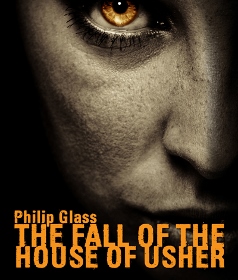

{ 3 comments… read them below or add one }
LBO, this is going to be beyond great! I am so glad to live in So Cal!
Mr. Frankel, it’s a great opportunity to see such a piece, thank you! (I’m going twice, btw…)
I love Glass, but when I saw this was an opera review, I was hesitant; that’s unfamiliar territory and makes me feel baffled. But this was truly a pleasure to read, and makes me unhappy, now, that I don’t live close enough to go investigate it! Dip a little toe in, peek in the door. Grrr, jealousy now. I have to recommend this to my music (not usually opera) fan friends that do live closer by. I need to know more now.